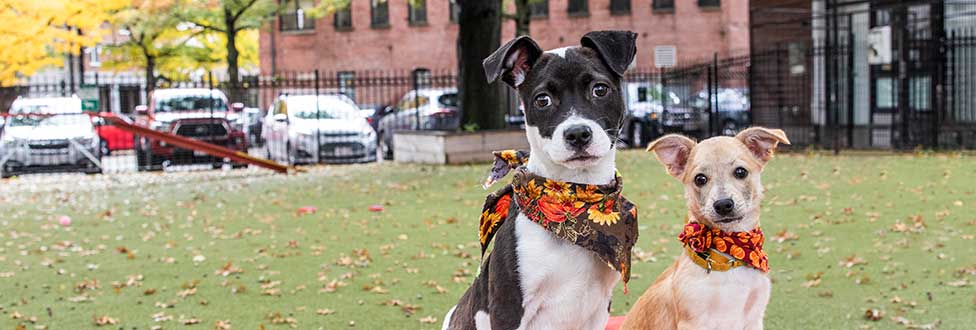5 Thanksgiving Foods Your Dog Should Avoid
Keep your pup joyful and healthy this holiday with these helpful tips
Thanksgiving is a time to savor delicious food, enjoy the company of our family and friends, and to show gratitude for all that we are thankful for in our lives.
While it’s wonderful to include your pets in your holiday traditions, it’s important to remember that our furry companions cannot indulge in the same feasts that we prepare for ourselves. Some of the common Thanksgiving foods that fill our plate can actually be very dangerous for your pet to ingest.
Here are the 5 Thanksgiving foods that your dog should avoid:
-
- Turkey bones are small and can become lodged in your dog’s throat, stomach, or intestinal tract. They may also splinter and cause severe damage to the stomach or puncture the small intestine.
- Fat trimmings and fatty foods like turkey skin and gravy are difficult for dogs to digest. In fact, consuming turkey skin can result in pancreatitis. Symptoms for this serious disease can include vomiting, extreme depression, reluctance to move, and abdominal pain.
- Dough and cake batter contain raw eggs, so the first concern for people and pets is salmonella bacteria. What’s more, dough may actually rise in your dog’s belly, which can lead to vomiting, severe abdominal pain, and bloating.
- Nutmeg is commonly found throughout the holiday season in baked goods and beverages. This spice is not safe for your pup and can cause seizures, tremors, and vomiting.
- Raisins and grapes, although the causes of their toxicity are unknown, can cause kidney failure in dogs.
The best way for your pet to partake in the holiday cheer? Stick with traditional treats that are safe for dogs and cats! Food puzzles and interactive toys like a Kong filled with plain yogurt, peanut butter and 100% real pumpkin are a great way to keep your canine entertained and feeling satisfied all holiday long.
Bonus tip: Keep your vet’s emergency number handy. Should your pet become ill, contact your pet’s veterinarian or the local animal hospital’s number! A quick call to either of them can give you life-saving advice or even help you avoid a trip to the ER.

